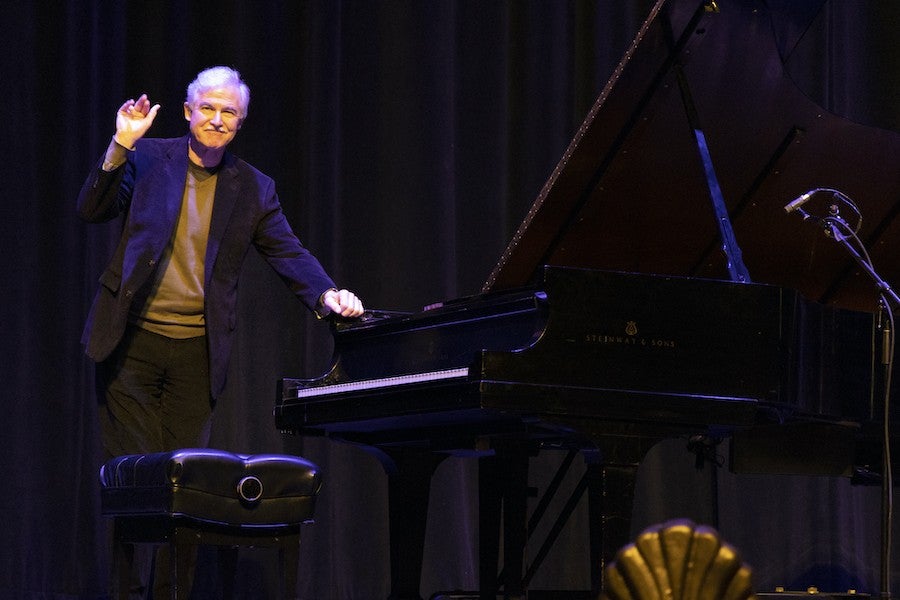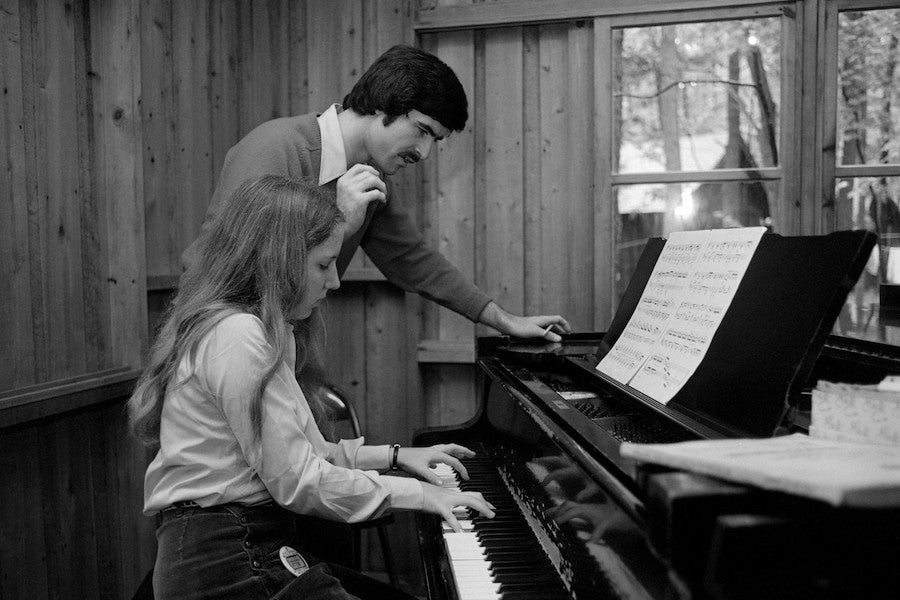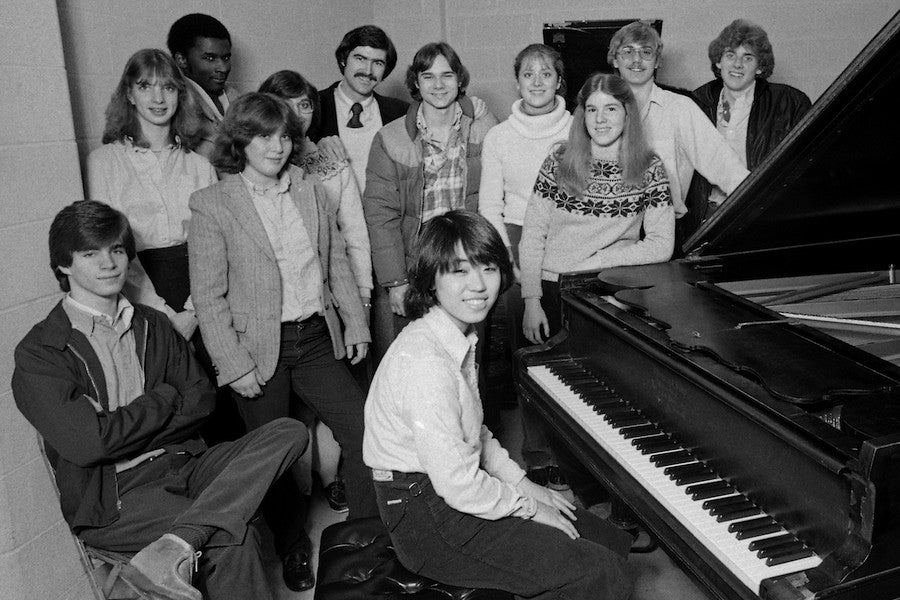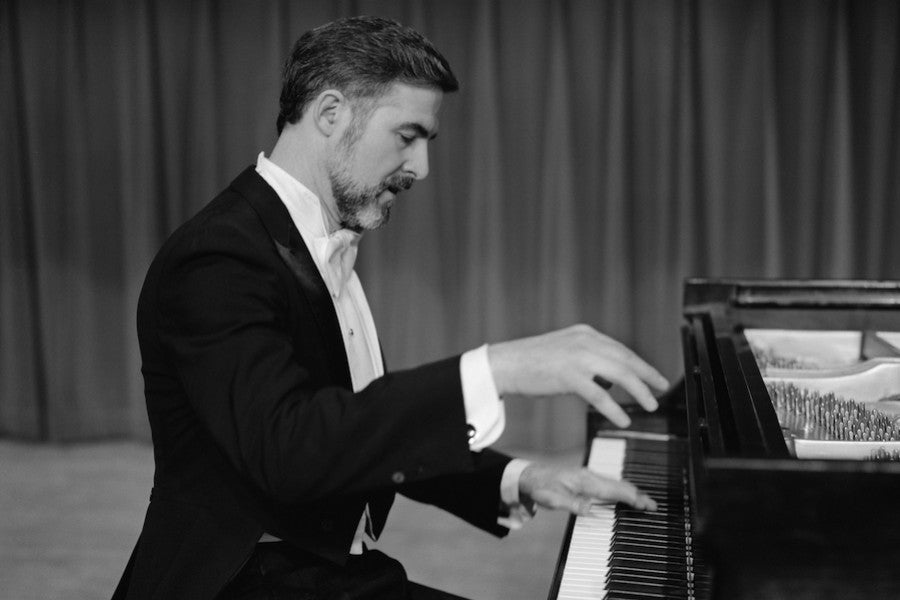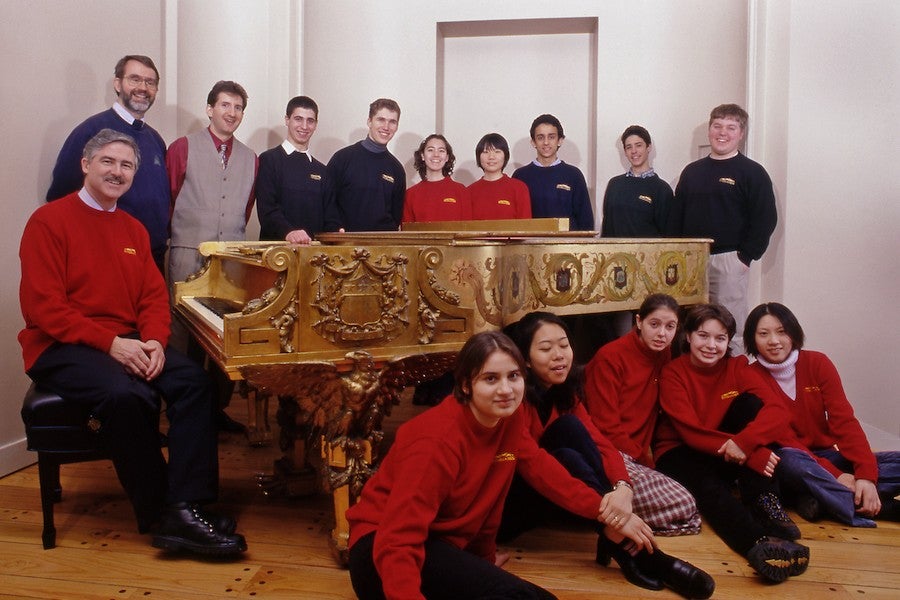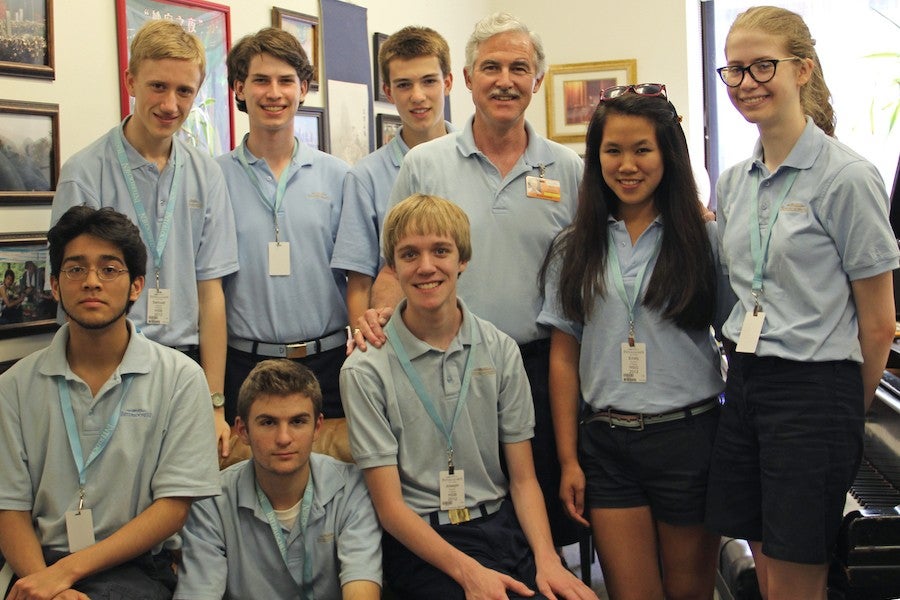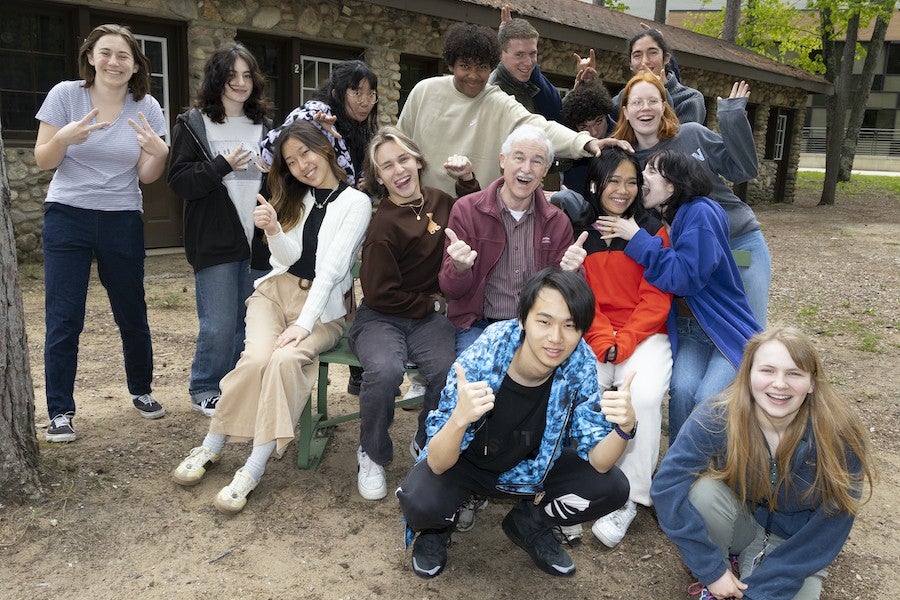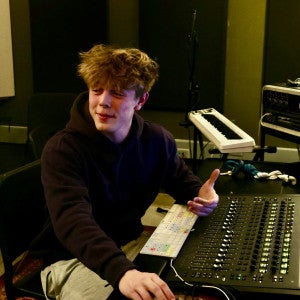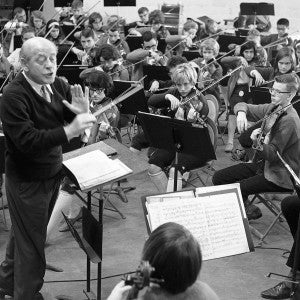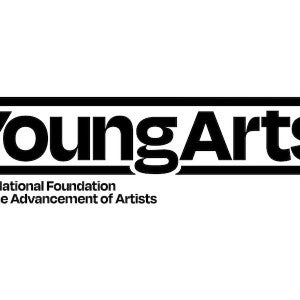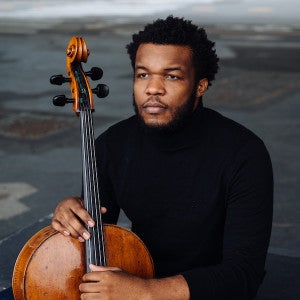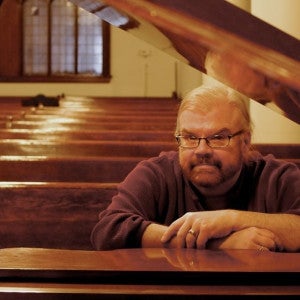Instructor of Piano Michael Coonrod retires after 46 years
Dr. Coonrod reflects on a lifetime of teaching, finding balance, and saying goodbye
Michael Coonrod first came to Interlochen in the summer of 1967 as a 17-year-old pianist who wanted to make a life in music. Just nine years later, he would return to Interlochen as a piano instructor to live that life under the stately pines. After 46 years teaching piano at Interlochen Arts Academy and 67 years behind the keyboard, Dr. Coonrod is retiring and passing his legacy to one of his own.
We recently sat down with Coonrod to hear his reflections on a career dedicated to teaching, performing, and finding balance.
What brought you to Interlochen?
I went to the National Music Camp in 1967. I was 17-years-old and had studied piano since I was four. In my choir room at school, there was a poster with a picture of a lake and a sailboat, and I thought it was a beautiful area. But mostly, it was Dean Boal, Dean of Fine Arts at Illinois State University at the time, who pushed my father to get me here. They were friends and colleagues at the University of Montana, and Dean suggested I study with George Lucktenberg at Interlochen for the summer.
I really enjoyed it and was dedicated. I practiced seven hours a day. I had a theory class. I had a piano literature class. And I took tennis lessons at 4:30, during what they called “forced fun.” But, I loved it and loved the setting because I come from Montana and enjoy the outdoors.
What do you remember from that time?
I remember the concerto competition. This woman with blonde hair played the Sebelius violin concerto, and I fell in love with that concerto because of her playing. It was really wonderful. And I remember we had piano literature class on the stage in what is now the academic library. It had two big glass doors adjoining the concourse. We were having class, and two kids from my cabin opened the door and yelled, “Hi, Mike!” and disrupted the whole class.
I remember many other things: Cabin 13, the smell of sulfur in the water, and swimming in the lake with friends. I am still connected to a few. I had a friend at Camp, Walter, who educated me, “You know, if you don’t brush your teeth within a half-hour of eating, it doesn't do any good.” He was about to retire as a piano professor at Arizona State University the next time I saw him. He was a very fine pianist, and it’s amazing how decades pass by, and then you just take up like nothing happened.
You joined the faculty just nine years after that first experience. How did that happen?
I was lucky. I was really good at one thing. I remember being at Disneyland in Anaheim as a young child, and a waitress in a restaurant asked, “What would you like to be when you grow up, sonny?” “I want to be a pianist,” I said. So, maybe four or five years later, I realized you couldn't just say it. You have to work hard. And so I started working hard then.
I went to school to have a music career. I wasn't a good high school student, but I was a really good college student because I learned it was important to be well rounded. I studied piano at the University of Montana and started teaching in college to earn some money. I thought that was fun. Then, while at Peabody Conservatory, I taught in the preparatory program there. I had just finished my coursework for my doctorate at Peabody. The placement director phoned me and four or five others and told us, “You know, there is an opening for piano at Interlochen right now. You ought to get on the ball and send in your application.” Thinking that there would not be much time, I sent a resume, transcripts, recommendations, recordings, and a cover letter. The next thing I knew, they asked me to come to play a recital with three days' notice. A week or ten days after that— all of this is happening in August—I got a note saying, “We’d like to offer you an employment opportunity.” And that was 46 years ago, so I’ve made a career of it. Who would have known that would be my lifelong job when I was in high school?
When did you know that teaching would be your life’s work? What was that spark?
Almost everyone grows up wanting to perform if they are talented and passionate. Not as many say, “I want to be a teacher.” Somewhere along the line, I thought it was interesting and rewarding to teach. In college and graduate school, it was exciting to be able to show kids how to do things. As a teacher, you don’t just demonstrate rhythm by playing it, though. You have to make sure students can do it. You have to show them, physically, how to create things that are beautiful and artistic. I’ve learned so much from my teachers, colleagues, and students and boiled it all down to what I think is essential as a teacher.
I've always liked young people. That’s why I’ve been involved in scouting for so long, and that’s why I’ve stayed here. It keeps me young. Every graduation, I’m still here. Every year, I get older, and the students are still the same age - different people, same age. Now, I’m graduating with them!
What are the most important lessons you’ve taught your students?
I’m always encouraging my students to have a liberal arts education and find balance. If you just spend your life practicing piano technique, you don’t know what to express. But if you understand lives and stories, explore art history, and read British literature, American literature, and biographies, you have something to express. I’ve heard young children play beautifully because they’re taught every note, every volume change, and every breath, but real creativity comes later when you have something within yourself to express. Balance is critical for students so involved in the arts. That’s why I’m always trying to get students outside—camping, hiking, or swimming in the lake. It is my little effort to help them find balance in their lives.
Also, you have to think creatively based on what the composer has written down and be a supportive person in the community for their colleagues. I require all of my students to attend 15 of their peers’ recitals, whether they know them or not, because I want them to understand the value of supporting one another. It’s easy to be selfish with your time in school. You want to make grades, you want to practice, you want to make every single minute count. It tends to be very self-oriented, so I think it is essential to learn to do things for other people. My watchword is to help other people, so teaching is an ideal profession for me.
What have you learned from your students?
I’ve learned to listen. If something is bothering a student in their life, you’ve got to listen to them first. Otherwise, it’s tough to teach. I’ve learned to give specific assignments, share feedback on how they are doing, and encourage but not overpraise. They can see through that. Students are the most critical of themselves, so you have to balance showing them the right way with encouragement. It’s about a positive attitude. When students think they can’t do it, you have to show them that they can. Over the years, I’ve learned to be patient and that you can’t expect someone to do something they can’t yet do. Some teachers get flustered and belittle, and you can’t do that. You have to be patient, encourage, and channel because there is a place for music in everybody’s lives.
Kara Huber is Interlochen’s new instructor of piano. She studied with you from 2004 to 2006. How does it feel to pass the reins to one of your students?
I can’t believe that it would have happened this way. It is like a dream come true. Several former students could have done a fine job, but she is one of the best.
Nelita True was one of the greatest piano teachers in the world who passed away a couple of years ago. She started her career as an accompanist here at Interlochen’s National Music Camp, and then she went to Julliard and got her doctorate. She was later chair of the music department at Eastman School of Music. When Kara graduated, I said to her, “I think you’re going to be the next Nelita True.” Many years later, when she came to interview for the position, one of my colleagues said, “You know, I think she might be another Nelita True.” I thought, “No way. I said that the day she graduated!”
Can you share a favorite memory from your time at Interlochen? What will you take with you?
One of my favorite pieces of all time is the Schubert Fantasia, in which I’ve played both parts, primo and secondo, for many years. And two of the most advanced, creative, and wonderful students are graduating this year, and they played it last week. They played it in each of their recitals and played it really, really well. That jumps out at me as being the highlight of my career. Seeing two special students play one of my favorite pieces in their senior recitals was an honor.
Also, I have a special relationship with my first student, who graduated in 1979. In 2019, she donated, bought an ad in the program, and came from Los Angeles to the performance of the concerto for left-hand I did with the Traverse Symphony, commissioned after I lost the fourth finger on my right hand. That she would think so much of me to come back and do that means so much.
Will you still perform?
I’ve played a recital every year for 46 years. I’ve recorded five CDs and performed worldwide, but I am tired of memorizing. So, if I perform again, it will likely be with chamber music, where you don’t memorize, and you’re sharing the stage with others.
When you think about your students over the years, what is your wish for them?
I wish they would be happy in what they are doing, as happy as I have been at Interlochen. There are plenty of people who live for the weekend, but I’ve never felt that. I just hope students are happy with their lives because there is more to life than just playing an instrument and being successful. I am proud of working at Interlochen and being responsible for the success of many, many students—whether in music or not.
And I hope they come back to see me while I am still here.
In your last community meeting at Interlochen, you said farewell with a special arrangement of Danny Boy. Why that selection?
It is one of the most beautiful melodies ever written, and my middle name is McGill, so I am part Irish. I’ve always wanted to arrange it for piano, which I did once before. But, after I lost my finger in 2014, I wanted to see if I could do it with my left hand. It has rich bass lines, and that is what you do with the left hand. So, that is what I did. Also, it’s nostalgic because I’m leaving. And if people know the poem, they’ll cry. And I really do want to see my students again.
"Danny Boy", arranged for the left hand and performed by Dr. Michael Coonrod in 2022.
But come ye back when summer's in the meadow,
Or when the valley's hushed and white with snow,
It's I'll be here in sunshine or in shadow,
Oh, Danny boy, oh Danny boy, I love you so!
Why does the world need Interlochen today?
Oh boy. We need people sensitive to music and one another. Whether you go into the arts or not, it creates a sensitivity to that side of yourself. The world is so full of hate and war and terrible things. But I come here, and I see all the beauty, performances, people proud of what they are doing, and faculty who are genuinely devoted to the students. And I think, “Golly, we really need this place.”
As a tribute to Michael Coonrod, an alumnus has established the Dr. Michael Coonrod Visiting Artist Fund in Piano. Alumni and friends can also honor Coonrod by making a gift to this new fund or to the Interlochen Annual Fund. Please visit Give to Interlochen or call the Philanthropy Office at 231.276.7623.
